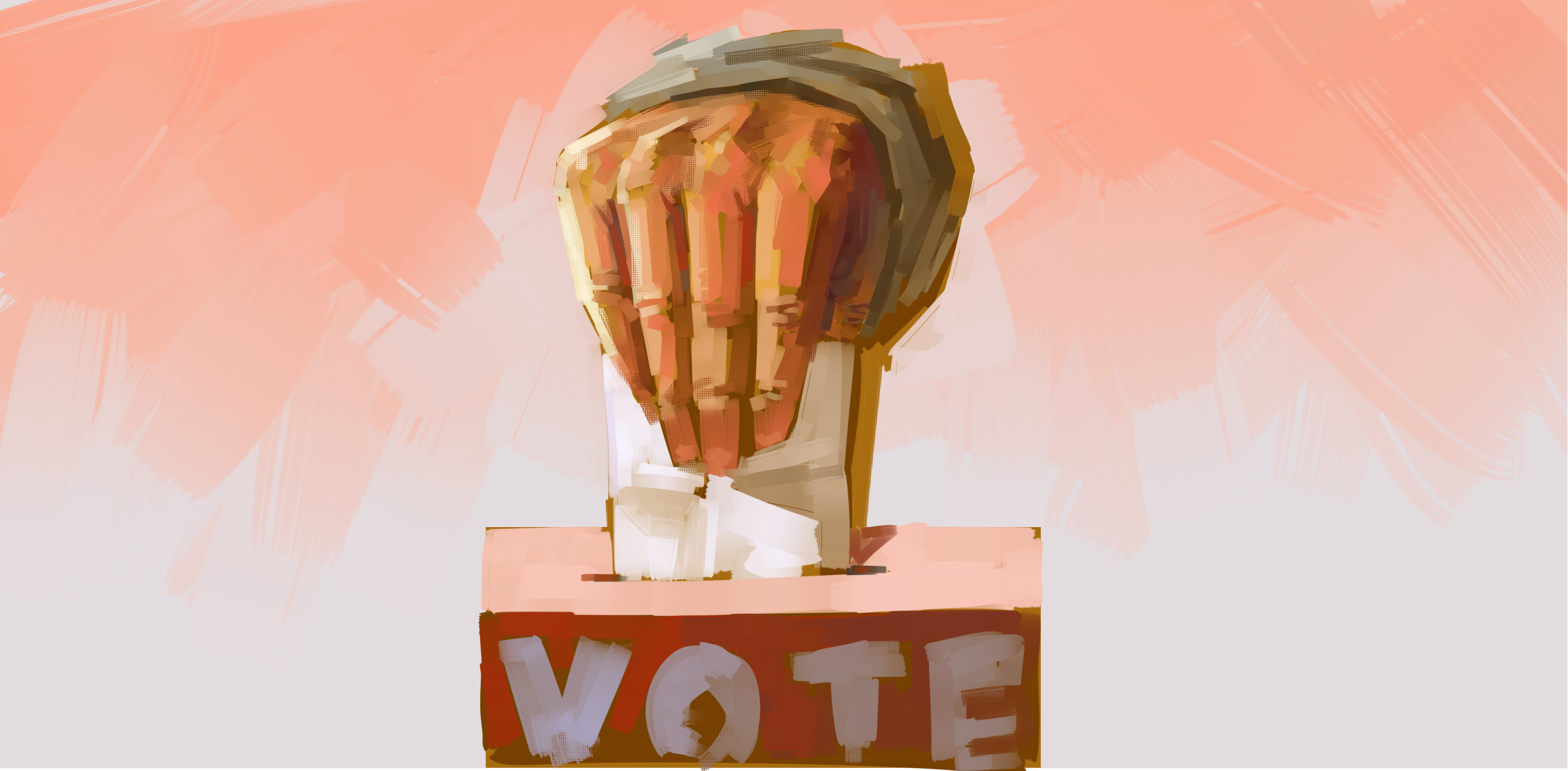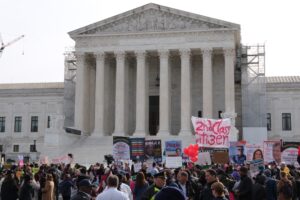There is a collective exhaustion around politics. The disillusionment with its ability for true, progressive change is not unfounded—once again, many of us feel forced to choose between two presidential candidates, both of whom this editorial board finds morally objectionable.
A majority of Americans disapprove of President Joe Biden. His failure to take stronger action against Israel has cost him. Support among younger Americans, as well as many Arab American communities, has fallen dramatically. And, of course, the other option is former President Trump, a racist, misogynistic abomination facing 19 lawsuits, including a charge of inciting an insurrection. The allure of third party candidates like Jill Stein and Cornel West feels stronger than ever, although this editorial board recognizes that materially, America will ultimately pick between the two aforementioned evils.
To feel a lack of agency under our current political system is, unfortunately, commonplace. Electoral politics, especially presidential, may not look promising. But there is space for grassroots mobilization on the ballot, and the only way to ensure a modicum of progress this electoral cycle is to vote.
While many students abstain from voting because they understandably feel disenchanted with the American political system, it is important to remember that the presidential race is not the only thing on the ballot. 435 House and 33 Senate seats are up for election, and at least 57 state-wide ballot measures have been certified for this November. These measures address key issues like minimum wage, abortion rights, and ranked choice voting options, which have a significant impact on voters’ everyday lives.
National politics is often perceived as being controlled by old, rich congressmen who have lost touch with their constituents—voting in local elections works to address that issue in the long run. By casting a vote for local and state offices, students have a chance to decide who represents their communities. Electing progressive candidates to the school board or to a state supreme court helps build a bench of elected officials who can potentially run for higher office in the future and energizes a grassroots power base that can be mobilized to enact change elsewhere.
Moreover, local and state issues—including criminal justice reform, reproductive rights, and trans rights—are particularly important for marginalized communities. In June 2023, three progressive prosecutors won the Democratic primaries in the Arlington, Loudoun, and Fairfax counties, despite facing primary challengers over their support for rehabilitative criminal justice reform.
Last November, voters in Pennsylvania ousted school boards controlled by Moms For Liberty, a group that had previously banned books, pride flags, and transgender athletes from schools. Meanwhwile, voters backed abortion rights on statewide ballot initiatives in Kansas, Ohio, Montana, and Kentucky. Kentucky voters also re-elected Governor Andy Beshear, defeating conservative Attorney General Daniel Cameron, who had previously called Breonna Taylor’s killing “justified” and ran a campaign that sought to strip gender-affirming care and rights from trans people.
Living in the heart of national politics, Georgetown students can lose sight of down-ballot elections outside of the presidency and Congress. But historically, local elections have impacted national issues—the combination of grassroots activism and local political engagement has successfully empowered Americans to place pressure on federal officials and actively shape U.S. foreign policy. What began as a local anti-apartheid movement in the 1980s resulted in 28 states enacting sanctions against entities conducting business with South Africa. More recently, the Minneapolis City Council also became the first city to pass a resolution calling for an end to U.S. aid to Israel, following Chicago’s resolution calling for a ceasefire in Gaza. The emergence of such measures necessitates student participation in city council, school board, and state elections to designate leaders who advocate against global injustices.
Because of the physical distance between D.C. and many students’ homes, students may also face logistical difficulties in engaging with their local communities. Thus, we should make a concerted effort to stay in touch with the issues most impacting our communities and make a plan to vote.
Our participation can’t wait until November. Because of gerrymandering, 90 percent of elections are decided in the primaries. People who vote in the primaries, however, don’t represent their communities—not only do fewer people vote, but those who do are more likely to be older and whiter. That means your vote matters more now than on Nov. 5.
Because voting is regulated at the state level, the process of receiving your mail-in ballots can be convoluted, potentially as a way to suppress your vote. However, with just five minutes of preparation at the start of the year, you can plan ahead to make sure every vote counts. Eleven states will hold primaries before May, with the majority of states holding primaries in the summer before the fall semester. You should take the time to research the date for your primary (and run-off, if your state uses them) and the voting process—some states use closed or partially closed primaries that require you to register with a party to vote in the primary.
Some states don’t allow you to request an absentee ballot online. In this case, make sure you print, fill out, and mail your absentee ballot application early. You can visit Vote.org to get information about checking your registration, election reminders, and absentee ballots. Primaries may require a lot of research in terms of different local elections, so you can visit VOTE411, a nonpartisan website from the League of Women Voters where you can find information on the races and candidates on your primary ballot.
Despite the dismal state of national politics, primary elections and local races are places where we can mobilize. As college students, it is important that we stay aware of the issues that affect voters. Our generation has incredible political power—we just need to wield it. Take time to learn about grassroots organizing happening in your community and support these efforts any way you can. Local elections are the first line of defense for our communities. No matter the state of national government, we cannot give up the fight for progressive change.





